Melding references of Finnish mysticism and his own Tatar heritage, the designer unpacks his creative practice, technicalities and the power of storytelling.
In a world where the experimental nuances of fashion are increasingly commonplace, practicality isn’t the first thing that comes to mind upon viewing the sharply-curved swirls, neutral tones and warped lines from Finnish designer Ildar Wafin’s jewellery collections. But it’s not the last, either. “I begin planning my work by taking a practical stance to design,” says the bright-edged artist, 28, of his creative process.
“I love sketching quite freely, first by drawing or painting, and after that, I venture into a three-dimensional sphere—which might be clay or another material that I can mould into different shapes,” he adds. Enter cartoonishly, sculptural shapes that are fine-tuned from wax carving prototypes, done with both tools and hands to mould the chosen piece: it reads sublime, minimal and tasteful.
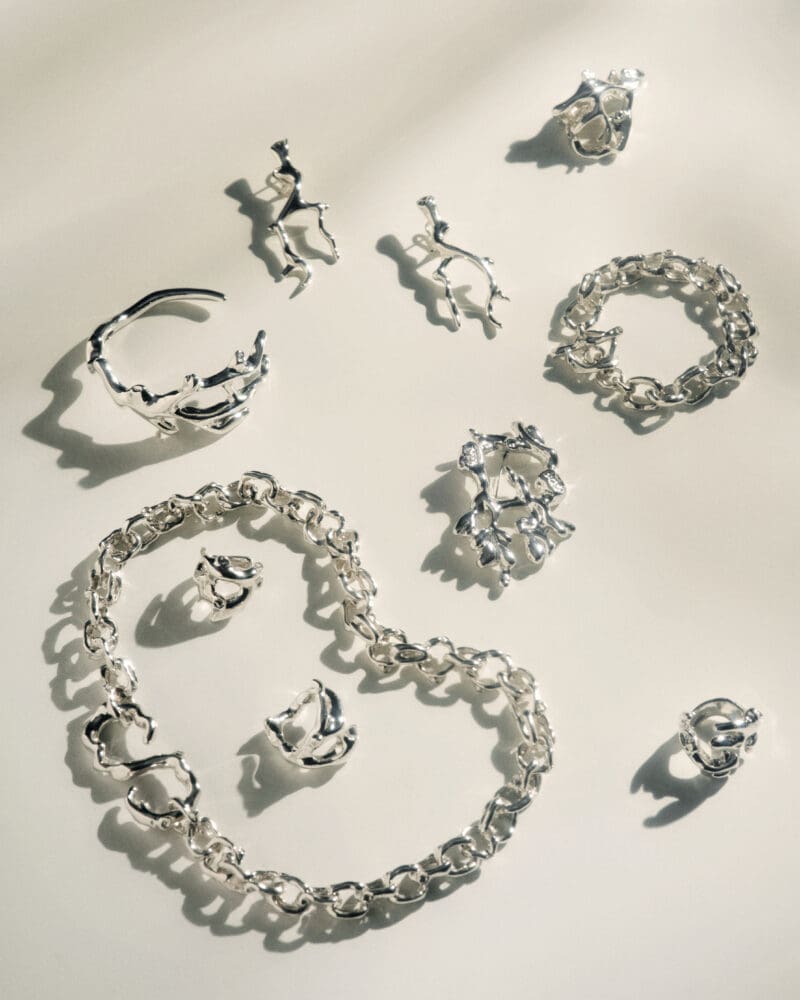
Ildar Wafin Jewellery. Photograph: Otto Virtanen
Originally a fifth generation Tatar—he’s one of approximately 700 Finnish Tatar people, an ethnic group formed in the late 1800s, immigrating from the Russian Empire to form the first Islamic community in the country—Wafin’s interest in jewellery began at a very early stage, when he was diagnosed with a very rare kidney disease in his youth (he’s been cured since) and had to spend most of time at home with his mother, a crafts teacher.
“I always needed some creative projects going on, in order to distract my mind,” he says. “We used to live in a rural town close to Helsinki, Järvenpää, where we had a three story house; a place where I had art exhibitions, and started to learn my craft by using metal wire, freshwater pearls and plastic beads.” These practical touchpoints are close to his Tartar upbringing, which Wafin deems special.
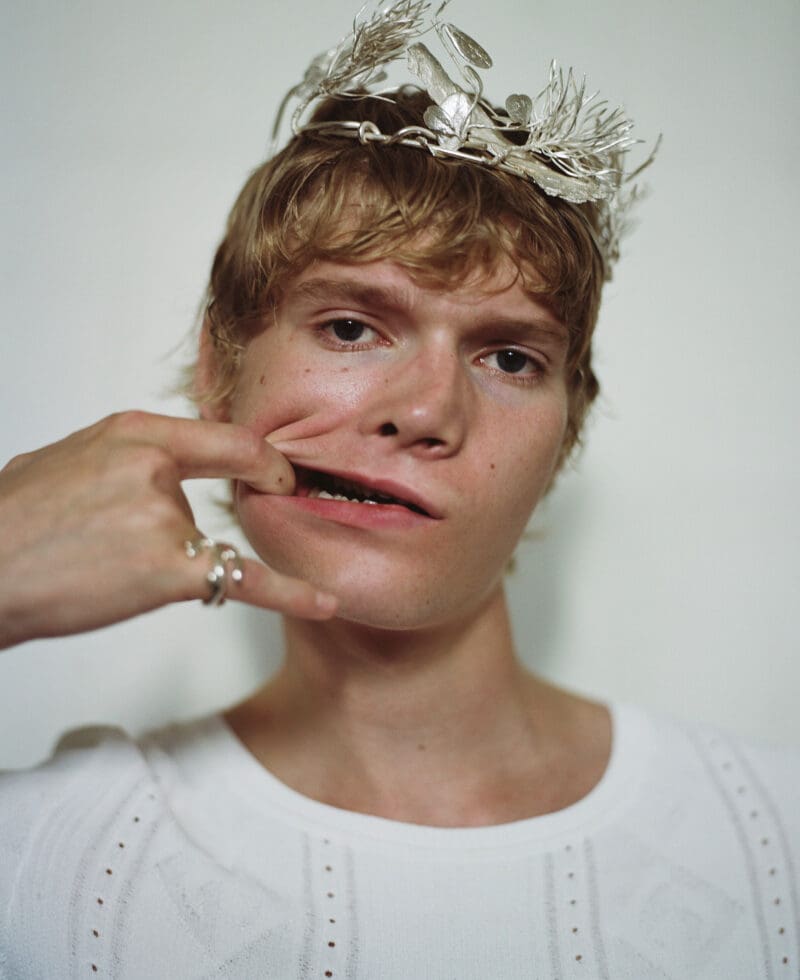
Ildar Wafin Jewellery. Photograph: Henna Koskinen
“I really love the folklore stories [about Tatar people] because they have a moral compass and a teaching weaved in them,” he says. “What’s more, they incorporate a lot of humans interacting with nature and magical creatures, magical forces of nature, which are very unprecedented.”
With his first jewellery collection presented in Villa Noailles as a part of the Hyères Festival Of Fashion competition in 2018, Wafin honed his craft by studying at The Royal College Of Art in London and completing an internship at Louis Vuitton.
“After that moment, I worked on my graduation pieces, which are currently available on the brand’s web store,” he details. The collection was also presented at Pitti Uomo with Rolf Ekroth for his Spring-Summer 2023 outing. “I’m starting to create a new collection at the moment,” he says, explaining that, “I’m looking into other potential collaborations, not just jewellery-oriented, but sculpture too.”
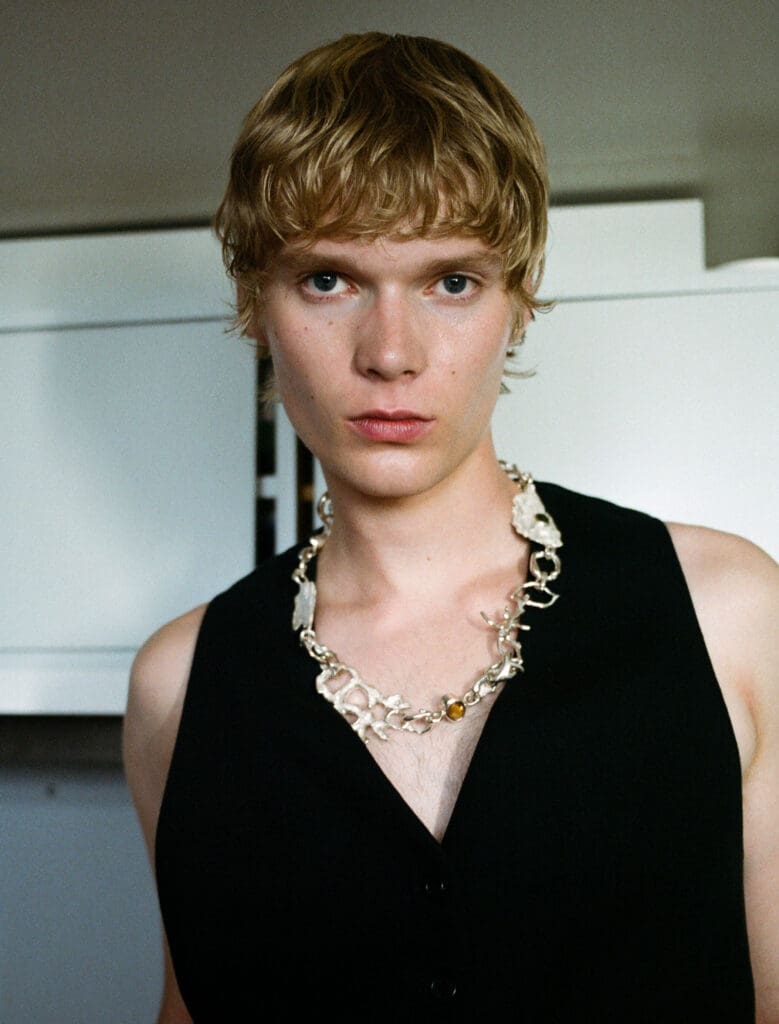
Ildar Wafin Jewellery. Photograph: Henna Koskinen
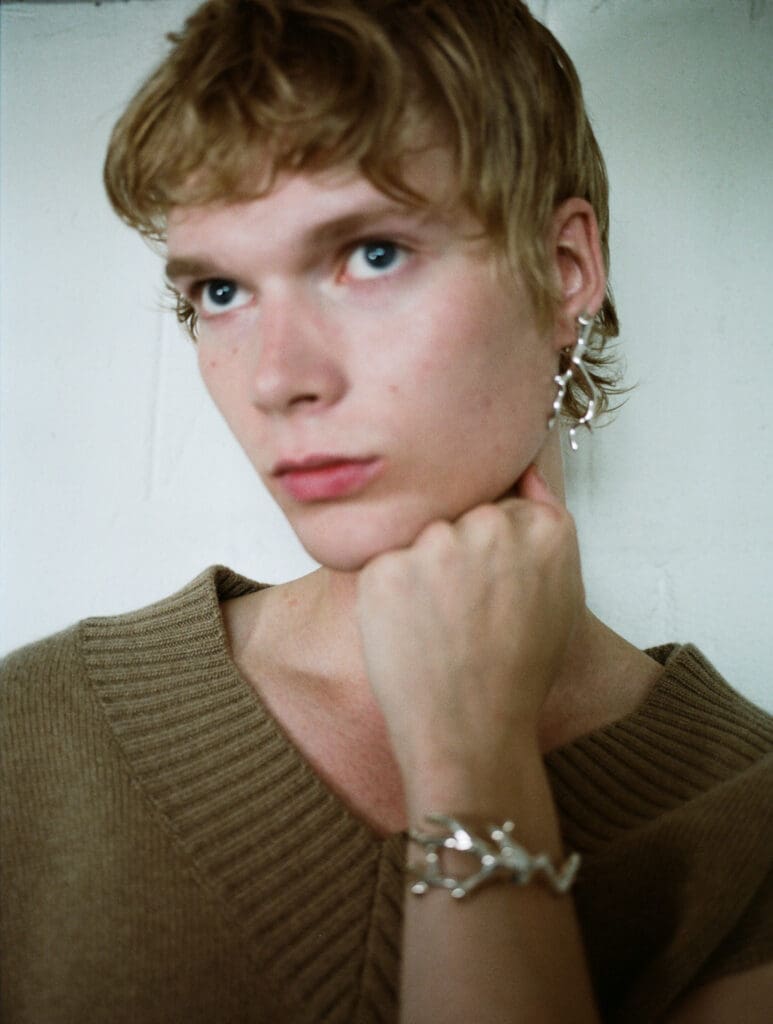
Ildar Wafin Jewellery. Photograph: Henna Koskinen
As the recipient of the ‘New Talent’ award at the Finnish Fashion Awards, Wafin launched a jewellery collection designed for the iconic jewellery brand Kalevala Koru. This fall, the brand will release a line that blends mysticism and modern-day practicality. The Männyt (Finnish for “pines”) collection marks the first line led by Kalevala’s new Creative Director, Aino Ahlnäs.
“The pine trees encapsulate nature’s vigour and mystique in their intriguing forms and patterns. The swirling shape of the old pine trees is translated into the collection, creating sculptural jewellery pieces that reveal new forms when observed from different angles,” says Wafin.
Aino Ahlnäs, Kalevala’s Creative Director, adds, “The modern yet timeless Männyt collection follows Kalevala’s strong design heritage, combining sculptural shapes with powerful storytelling. These jewellery pieces are like wearable sculptures meant to be worn every day.”
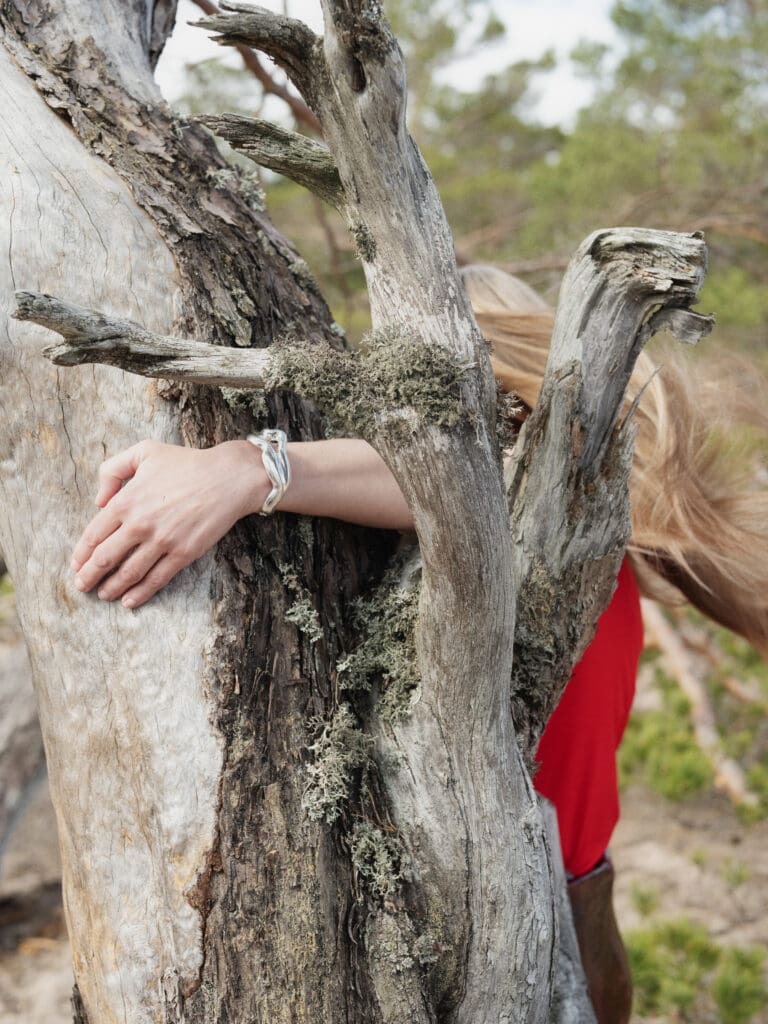
Kalevala Koru x Ildar Wafin
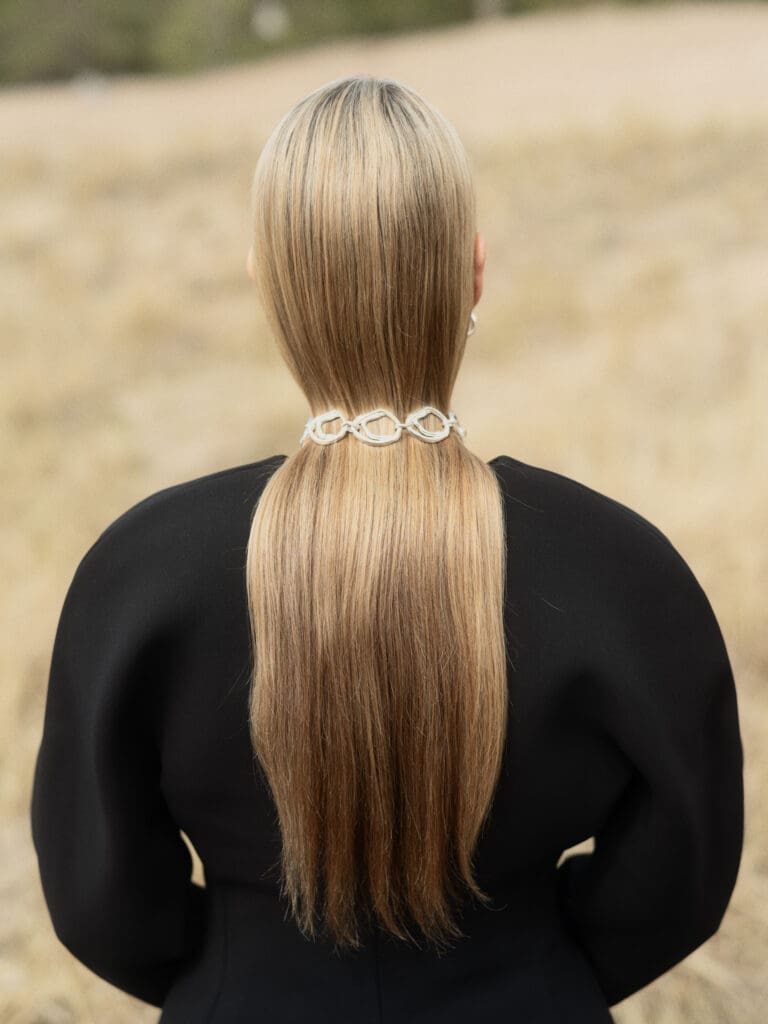
Kalevala Koru x Ildar Wafin
Wafin’s poignant, pragmatic vein may lack the traditional grandeur of jewellery, likewise, the willingness to take a matter-of-fact theme and run with it, but no matter. He has many bases covered—from a personal devotion to craftsmanship to seemingly endless options of shape, in line with gold, silver and pavè technicalities.
All he needs to realise now is that showing very few pieces detracts from the market’s ever-growing appetite for merchandising. Over-visibility of supply has a way of diluting perceived luxury value, but for now, Wafin is moving in the right direction.
by Chidozie Obasi
Discover more here
